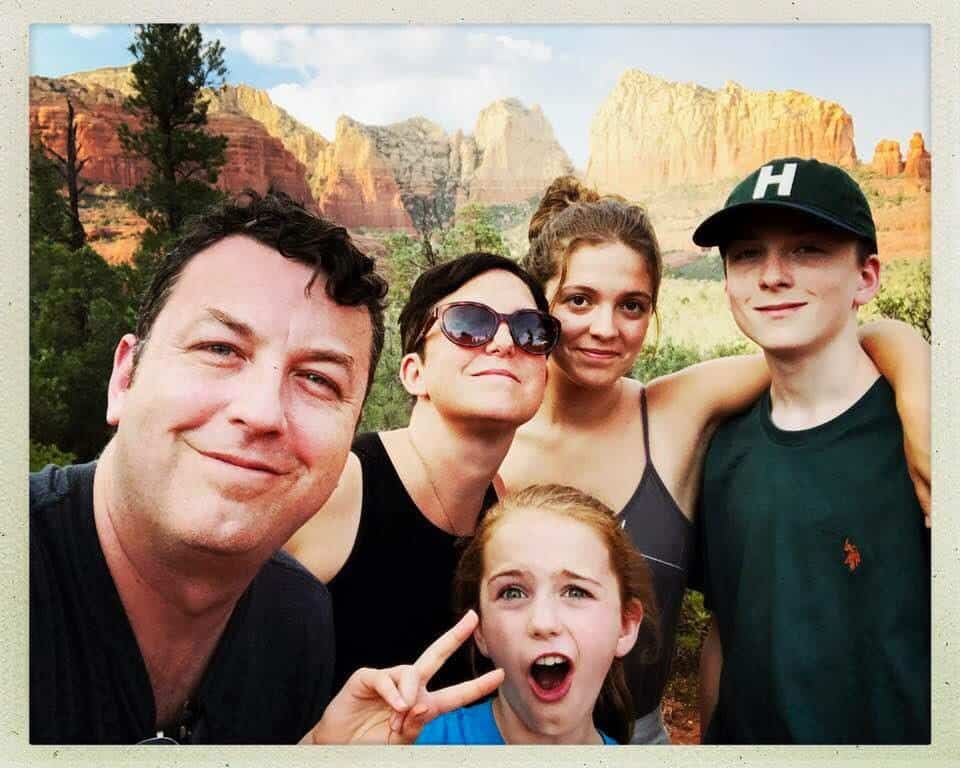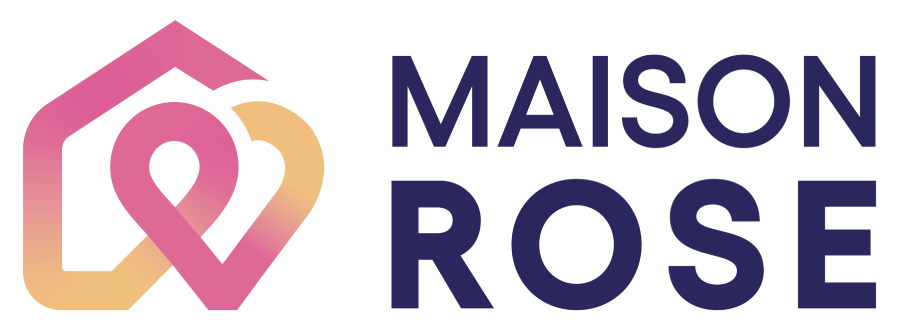
I was diagnosed with breast cancer in 2011: invasive lobular carcinoma, Stage 3. I was 36 years old and had just stopped breastfeeding my third child, who had just turned one and a half. I felt a little lump on my breast and thought at the time it was due to breastfeeding. I never suspected cancer because I knew that breastfeeding had protective qualities. Also, the lump was painful, whereas the information I had read suggested that cancerous lumps are often painless. And I started having children early, which is also supposed to be preventive.
I had a history of ovarian cysts. I thought it might be a cyst, but this time in my breast. Looking back, breastfeeding Clara, my youngest, had been more difficult and painful; I think the cancer was already there.
I couldn’t believe it, so I waited to see my doctor. I remember that she also postponed an appointment. In short, there were several months between the discovery of the lump and my first appointment.
When she examined me, she immediately gave me a referral for a mammogram, an ultrasound and a biopsy. I went to the private system, as it said “URGENT” on the referral and the wait in the public system, at that time anyway, was a few weeks. My doctor then called to tell me that something abnormal had been detected, and I suspected that it was cancer.
The surgeon wanted me to have an MRI because in my case the mastectomy had to take place before chemotherapy. At the hospital there was a three-month wait for this test, which I thought was too long. I was lucky that my parents paid for a private examination. As a result, more masses around the periphery were discovered. So the decision was made to have a total mastectomy and I had my surgery.
I hadn’t envisaged at all what entering menopause at 38 can do. It was difficult to stabilize and control. the effects of the tamoxifen, the drug I was taking, were really strong: I had a total of five treatments. The chemo was also difficult, but because you’re off work you can rest. Then came the menopause. I found it more difficult.
I also had my ovaries and uterus removed because I was producing too many hormones. As my cancer was hormone-dependent, it helped reduce the chances of recurrence. My gynecologist thought it was a good idea.
My three children were aged two, eight and eleven. My boyfriend worked in TV and film, so he had an irregular schedule and was on contract. He couldn’t stop working. Honestly, the stress of organizing the family is one of the things I found most difficult.
Once you have the diagnosis, you have to organize everything afterwards. I was working full-time and continued until early June to keep myself busy. All I could think about was cancer; it wasn’t healthy.
My daughter graduated from elementary school and the next day I had surgery. I waited until after my daughter Clara’s second birthday to tell the children the news.
We did it as a family, with my parents and my in-laws present. The children suspected that something was going on. They were upset with me afterwards for not having told them earlier. But at the time, there weren’t really any resources available on how to inform your children.
There were all sorts of reactions. I remember my oldest was in denial and bottled it up emotionally. My son was my “sponge:” he took it very seriously and was more than engaged. My mother knew from the beginning and was there for me the whole time; she was at my house when my doctor called to tell me the news. All our friends found out too.
There were no psychologists available at Notre Dame Hospital where I was treated, so I was followed by a psychiatrist, who helped me a lot. He also served as a therapist and was a huge support. Because I wanted my boyfriend to have support too (and I had been diagnosed on his birthday) we told all our friends straight away. I didn’t want it to be taboo either. I also wanted my son to be able to get help, but it was complicated. The system didn’t offer services to relatives; there were a lot of shortcomings.
Also, it seemed to me that the system is not really designed for families. When you have young children, appointments at the end of the day at the hospital are not possible, because the logistics are much more complex. We need them at the beginning of the day. The other spouse has to go on with their life and work! Sometimes picking up my daughter from daycare was easy because I was doing great, and other times I had no energy. But I was lucky, my friends often texted me asking how I was and if they should pick up my daughter from daycare. But still…
We know chemo is difficult, but with kids you need to be active. So when they were in school I tried to rest. They thought it was fun because I was at home when they came back from school.
The kids were prepared when I lost my hair. Nobody at home liked the wig so I never wore it. I was much more apprehensive than necessary, actually. I had a little fuzz, so I wore a little hat for the cold. Anyway, for the children it was never a problem. It’s more the image; it’s a sign that you’re sick. It’s a label and you feel like everyone knows. Sometimes it causes uneasiness so I decided to talk about it at school, in my son’s class, to make the kids feel comfortable and answer their questions. My son was asking a lot of questions and was afraid of death. Nevertheless, he emerged from this ordeal with some positives.
Of course, the stress is still always there; I often do breast self-observation and as soon as I have the slightest symptom I worry. I’ve just had another operation because my prosthesis had a kind of “safety recall.” The whole reconstruction process was a bit of an ordeal for me: I changed my prosthesis three times and had hardly any post-op follow-up. I still have a loss of feeling under my armpit and have had no rehabilitation service. A horrible experience. I was promised services, but because I had a partner at home, the CLSC concluded that he could change my dressings and that I was not a priority. My boyfriend was not comfortable; he was afraid of doing it wrong or hurting me. I respected that because I didn’t want it to become traumatizing for him. In the end, I did it myself.
Since having cancer, I have always said yes to raising awareness so that breast cancer does not become or remain taboo. The more we talk about it, the more services will develop in a cohesive way, because cancer can affect all women, not just older ones. So it’s important that people have references, stories that touch them. And yes, sometimes stories have a happy ending too, and we also need to show that you can be cured of breast cancer.
If you have any questions or concerns about breast cancer, the Foundation is there for you before, during and after diagnosis and treatment. A member of our team will answer you confidentially and guide you to the right services for your situation.


